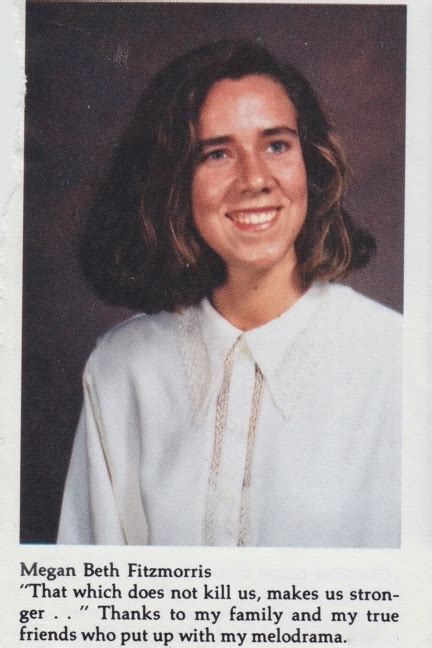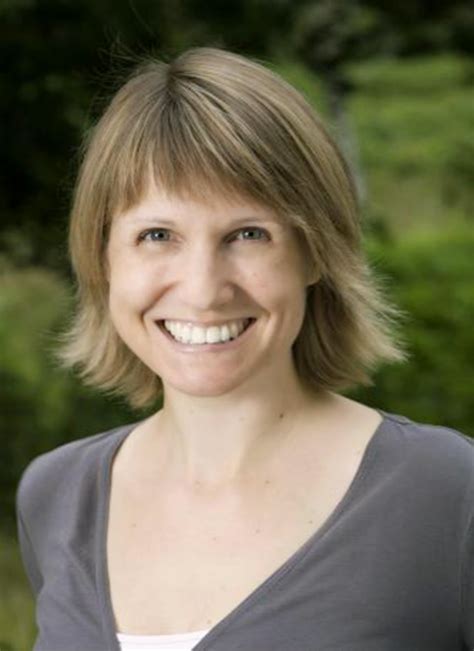A Quote by Edna St. Vincent Millay
I saw and heard, and knew at last The How and Why of all things, past, and present, and forevermore.
Related Quotes
She was perfect. I knew this the moment she emerged from my body, white and wet and wailing. Beyond the requisite ten fingers and ten toes, the beating heart, the lungs inhaling and exhaling oxygen, my daughter knew how to scream. She knew how to make herself heard. She knew how to reach out and latch on. She knew what she needed to do to survive. I didn’t know how it was possible that such perfection could have developed within a body as flawed as my own, but when I looked into her face, I saw that it clearly was.
I can't deceive myself out of the bare stark realization that no matter how enthusiastic you are, no matter how sure that character is fate, nothing is real, past or future, when you are alone in your room with the clock ticking loudly into the false cheerful brilliance of the electric light. And if you have no past or future which, after all, is all that the present is made of, why then you may as well dispose of the empty shell of present and commit suicide.
A woman journalist in England asked me why Americans usually wrote about their childhood and a past that happened only in imagination, why they never wrote about the present. This bothered me until I realized why - that a novelist wants to know how it comes out, that he can't be omnipotent writing a book about the present, particularly this one.
You can make the argument that there's no such thing as the past. Nobody lived in the past. They lived in the present. It is their present, not our present, and they don't know how it's going to come out. They weren't just like we are because they lived in that very different time. You can't understand them if you don't understand how they perceived reality.
But Jude,' she would say, 'you knew me. All those days and years, Jude, you knew me. My ways and my hands and how my stomach folded and how we tried to get Mickey to nurse and how about that time when the landlord said...but you said...and I cried, Jude. You knew me and had listened to the things I said in the night, and heard me in the bathroom and laughed at my raggedy girdle and I laughed too because I knew you too, Jude. So how could you leave me when you knew me?
You may have heard about living today, tomorrow, or "tonow." Tonow, children tell us, is a gift, which is why we call it "the present." Children understand that tonow is the place to live. The present is really the only moment we have. Sure, bad things can happen in the tonow. But when bad things happen to children, they show us the way again, because they know how to be in touch with their feelings and needs.
We human beings have enormous difficulty in focusing on the present; we always thinking about what we did, about how we could have done it better.... or else we think about the future, about what we're going to do.... But at this precise moment, you also realize that you can change your future by bringing the past into the present. Past and future only exist in our mind. The present moment, though, is outside of time, it's Eternity.... It isn't what you did in the past the will affect the present. It's what you do in the present that will redeem the past and thereby change the future.
I must. I have fought my last battle. When I saw the Clan at Sunningrocks, the strong helping the weak...and I knew you and the others had gone to confront the pack...I knew my Clan was loyal. I knew StarClan had not turned their backs on us. I knew...I knew that I could not leave you to face the danger alone.
How did men believe in something that preached love on one hand, yet taught destruction of unbelievers on the other? How did one rationalize belief with no proof? How could they honestly expect him to have faith in something that taught of miracles and wonders in the far past, but carefully gave excuses for why such things didn't occur in the present day?
We do have the ability to shift our paradigms - by shifting our belief systems, by working on ourselves, by looking very closely at how we show up in the world. It's why I'm into health and wellness. It's why my partner and I are very focused on creating a life that is about being connected; it's about being present. Because my life was probably so much in the past. I was so fearful. I was so fearful of the future because I was so scared of my past. So if you can work towards being present, then you can shift.
We learn in the past, but we are not the result of that. We suffered in the past, loved in the past, cried and laughed in the past, but that's of no use to the present. The present has its challenges, its good and bad side. We can neither blame nor be grateful to the past for what is happening now. Each new experience of love has nothing whatsoever to do with past experiences. It's always new.


































